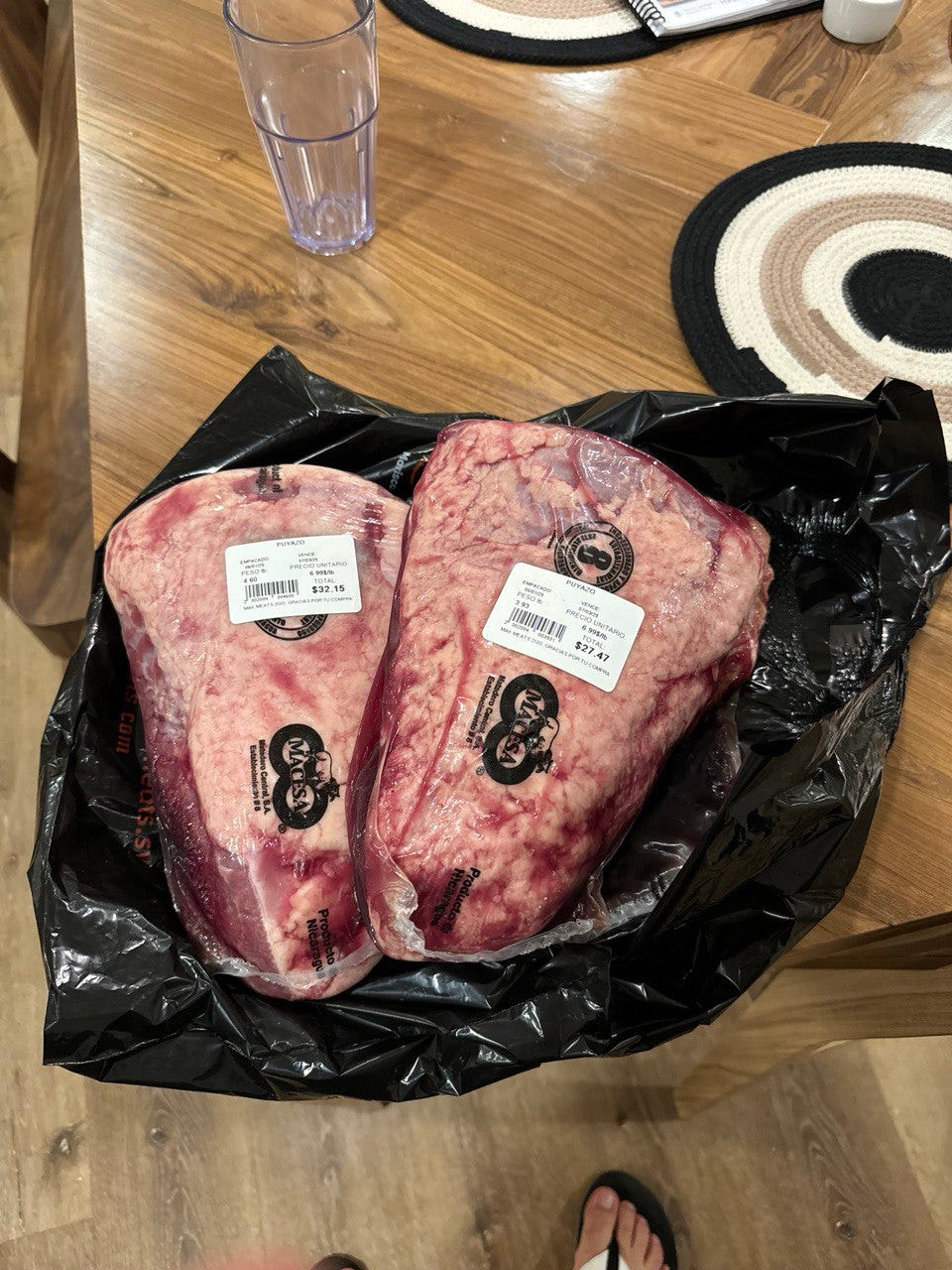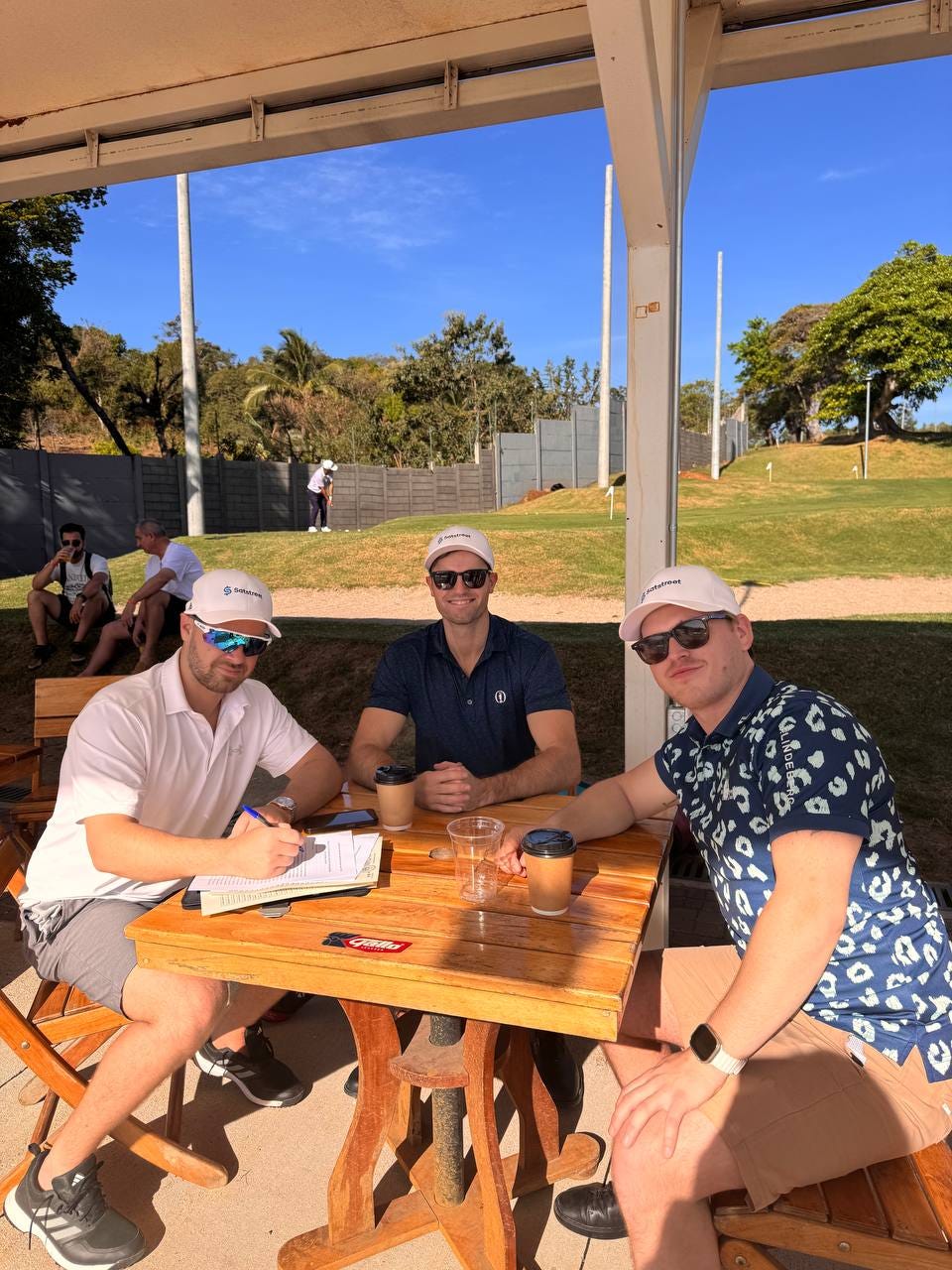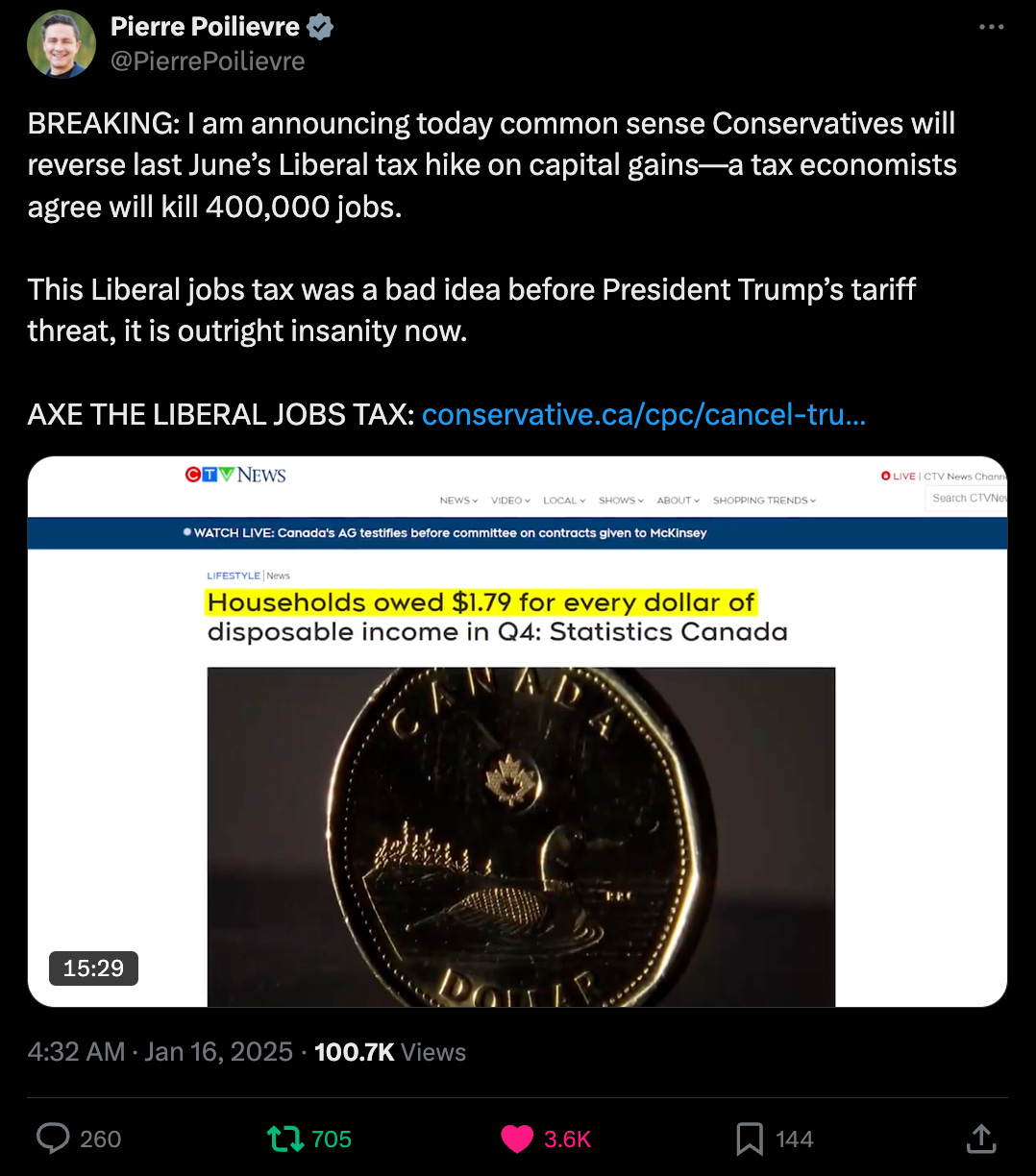El Salvador: From Dangerous to Dream Destination
Friday January 17th, 2025 - Issue # 93
(Any views expressed below are the personal views of the author and should not form the basis for making investment decisions, nor be construed as a recommendation or advice to engage in investment transactions.)
Let me set the scene: it’s freezing in Toronto, and I just got back from El Salvador, where it’s…not. Beautiful weather, pristine beaches, incredible steak and seafood, friendly people, low cost of living, and perhaps most surprising—an overwhelming sense of safety. Let’s just say my return to the snow and slush has been humbling.
I was there for the Max & Stacey Golf Tournament. Jon played a solid game; I didn’t. But we both made the cut for the 19th-hole shootout, where—after a couple of cervezas—I managed to hit a dramatic shot in front of a crowd decked out in pool party attire.
Golf aside, my time in El Salvador left me with a lot to think about—not just about the country’s transformation but about what it represents in a broader global context.
A few years ago, El Salvador was considered one of the most dangerous countries in the world. Today? It’s a global case study in transformation — or as kids these days would say “goals.” President Bukele’s administration has achieved what few thought possible: a drastic reduction in crime, cleaner streets, and a revitalized sense of national pride. The murder rate has plummeted, and the perception of safety is reflected everywhere—from families walking freely at night to tourists like me feeling entirely at ease. Unlike my house in Toronto, where it’s second nature to double-lock the doors, I didn’t feel the need to lock my door at all in El Salvador.
And safety is just one part of the story. The cost of living is another. To give you an idea:
A beautiful 3.6lb tomahawk steak will set you back $27.
8.5lbs of premium picanha? $60 bucks.
And yes, you could pay for these with Bitcoin if you wanted to, because this country has embraced Bitcoin as legal tender. That bold and prescient move has positioned El Salvador as a thought leader in the financial and technological space, attracting Bitcoiners, entrepreneurs, and investors from all over the world.
While in El Salvador, I had the privilege of meeting serious investors and key decision-makers who are shaping the country’s future. These are people who believe in the vision and are putting serious capital behind it. From supply chain and logistics to real estate and renewable energy, the level of investment and ambition is staggering.
I met with sharp, motivated regulators, bank executives, and government officials eager to capitalize on El Salvador’s first-mover advantage. Leading the charge for Satstreet is our Director of Sales, George McBride, who has tirelessly spearheaded our rollout over the past year, earning a stellar reputation on the ground. El Salvador’s progressive Bitcoin regulation, led by Juan Carlos Reyes and CNAD, has been pivotal in attracting businesses like ours. Thanks to George’s leadership, Satstreet is now deeply embedded in this transformative chapter for the country.
On a personal note, Satstreet officially incorporated in El Salvador during our trip—a milestone that feels particularly symbolic. A big shoutout to our amazing lawyers at Torres Legal, who went above and beyond, even traveling to the golf course to finalize the paperwork with us!
I’ve been thinking about this since the last time I visited Bitcoin Mecca. I actually have a few drafts that never saw the light of day where I toyed with the idea that El Salvador can be the next mini Dubai or Singapore.
When you look at Dubai and Singapore, their success wasn’t accidental. Dubai leveraged its oil wealth to become a global hub for trade, tourism, and finance. Singapore capitalized on its strategic location and proximity to China’s burgeoning wealth to transform into a logistics and finance powerhouse. El Salvador’s bet? Bitcoin.
It’s early days, but the parallels are striking. Under Bukele’s leadership, El Salvador has become a beacon of hope for other LATAM countries like Argentina, Brazil, and Mexico—nations with rapidly developing economies and massive populations. If they take notes from El Salvador’s successful experiment and replicate its playbook, we could see exponential growth across the region, with El Salvador positioned as the LATAM hub for Bitcoin and digital assets.
Much like Dubai’s focus on infrastructure and Singapore’s emphasis on governance, El Salvador is crafting a unique narrative. The country is combining financial innovation with tangible quality-of-life improvements like safety and affordability. If Bitcoin continues its trajectory as the most valuable asset on the planet, El Salvador has the chance to become a magnet for financial freedom, global talent, and innovation—a true hub for the modern economy.
This isn’t just about Bitcoin; it’s about common-sense governance. Bukele has shown that with bold, decisive leadership, you can achieve tangible results: drastically reduced crime, a low cost of living, and a magnet for global talent and investment. The pieces are in place for something extraordinary.
No bold experiment comes without risk. Some critics cite the dangers that come with the centralization of government power. Fierce supporters, however, point to the administration’s overwhelming 85%+ support in the polls as a clear mandate. In two back-to-back elections, voters have chosen safety and economic opportunity for their families over concerns about autocracy. I suppose it doesn’t get much more democratic than that.
Beyond politics, Mother Nature always lingers as a risk. While earthquakes and volcanic activity are infrequent, they are a reality. During my visit, I experienced my first-ever earthquake on an upper floor of an office building. It certainly got my attention, but in the end, it was a non-event, and it was back to business as usual. Hopefully, Mother Nature is a Bitcoiner.
I think these risks are already heavily priced in. Real estate in El Salvador is absurdly undervalued for what the country could be. As Max Keiser put it at the tournament: “Buying real estate in El Salvador is like buying Bitcoin at $10.” While I wouldn’t go that far, I do believe it’s one of the most intriguing asymmetric bets in the world of real estate. If the next 30 years don’t see the wheels come off, the returns could be enormous. Betting on El Salvador means betting on its people, its leadership, and its energy. And yes, it means betting on Bitcoin.
Sitting here in freezing Toronto, I can’t help but wonder: why can’t we get back to common-sense governance? El Salvador has shown that bold leadership can drastically improve safety, lower the cost of living, and attract global investment. So what’s stopping us?
This is a good start:
But this is just a start—Canada needs serious reform. If you’re as tired as I am of Canada’s current trajectory, let’s talk about solutions. On February 13th, we’re hosting our second fundraiser for Pierre Poilievre in Toronto’s Distillery District. Drinks, canapés, and an opportunity to hear from someone who understands what’s at stake for Canada. Let’s discuss how we can learn from places like El Salvador and bring some common sense back home.
Have a great weekend!








